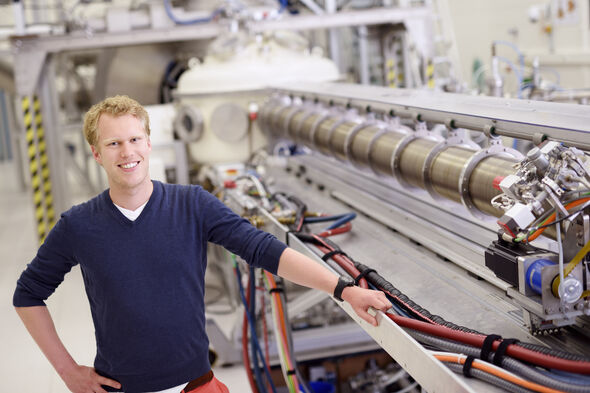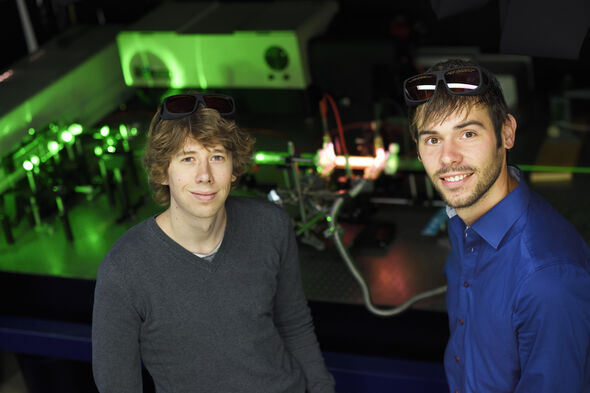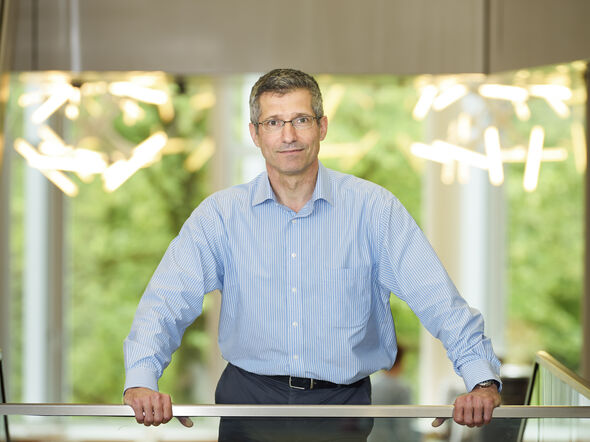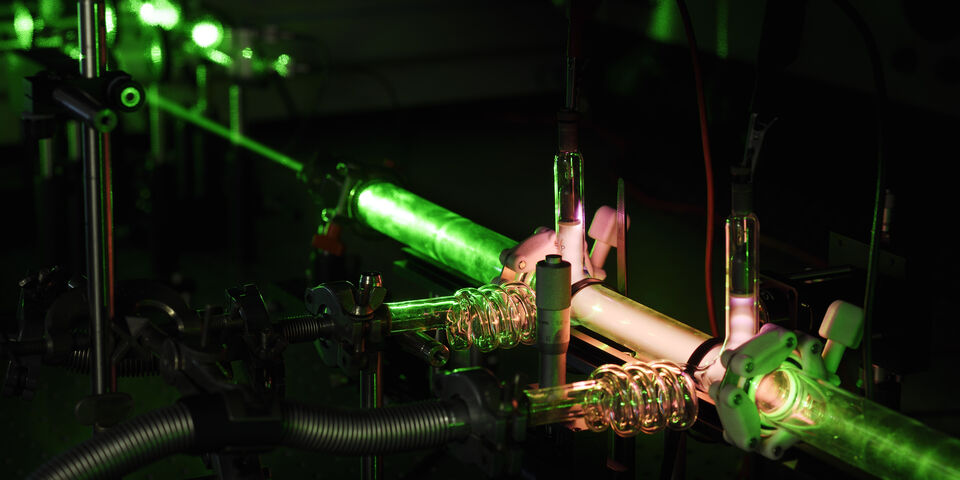Searching for clean energy with DIFFER
Two years ago the Dutch Institute for Fundamental Energy Research (DIFFER) moved from its Utrecht country estate Rijnhuizen to the TU/e Campus. While part of the promosed cooperation between researchers from TU/e and the energy institute is still in the start-up phase, various projects have taken off adequately in the meantime. This article presents some examples of joint efforts within the spearheads of DIFFER: Solar Fuels and Nuclear Fusion, plus a new joint initiative, the Center for Computational Energy Research.
The exhaust of a nuclear fusion reactor
DIFFER has a setup at its disposal in which the exposure of the wall of a nuclear fusion reactor to sizzling hot plasma can be approached the most closely: the Magnum-PSI. TU/e PhD candidate Peter Rindt has recently used this plasma accelerator to test one of the biggest problems in nuclear fusion reactors: the degradation of the ‘exhaust’ of the reactor by the fusion plasma.
In a nuclear fusion reactor, separate hydrogen nuclei in a plasma collide so hard that they amalgamate to form helium nuclei, a process in which a great deal of energy is released and which also takes place inside the sun. The plasma is confined by strong magnetic fields, but in the exhaust the glowing hot gas of charged particles comes into contact with the wall, which soon deteriorates due to erosion.
It is not practical simply to make that wall thicker, says Peter Rindt, PhD candidate at the TU/e Department of Applied Physics. “That would render it impossible to cool down the wall, so it would still break down as a result of the heat.” An alternative solution was proposed early in the 1970s, he says. “You could protect the reactor wall with a film of liquid metal, which is continuously supplemented from a reservoir.” Rindt is investigating now whether lithium could be a suitable option for this. So far, results have been encouraging.

Dissociation by means of plasma
The area of clean fuels is another one in which cooperation is taking place with DIFFER. The TU/e Plasma & Materials Processing group (PMP, Applied Physics) is one of the groups involved in several projects concerning the conversion of CO2 into CO – an important step in the production of liquid fuels by means of (sustainably generated) electricity.
For the formation of the intended sustainable fuel, it is first necessary to convert CO2 into CO. This can be done in a plasma - a gas containing charged particles – in which the CO2 molecules start to vibrate after colliding with electrons, and with each other. “You pump them, as it were, until an O atom is released”, Associate Professor Richard Engeln from PMP explains. “In theory this is a far more energy-efficient way to make CO from CO2 than the alternative, which involves heating all of the gas. This is due to the fact that it is only the electrons in the plasma that really heat up. And the dissociation of CO2 is the step that consumes most of the energy, so it is of the essence to optimize that step.”

Calculations on energy
With the advent of the Center for Computational Energy Research (CCER), which was opened officially on June 21, cooperation will begin between TU/e and DIFFER in the area of calculations with energy. The CCER will place emphasis on model formation and explorative computer simulations, which must have a guiding role for experimental energy research.
The new Center for Computational Energy Research is an equivalent cooperation between TU/e and DIFFER. In order to give a solid foundation to the center, former Shell top gun and TU/e alumnus Vianney Koelman was recruited as Scientific Director. In that capacity he is employed by DIFFER one day a week, and one day by TU/e.
The CCER is intended to be more than a virtual institute, Koelman explains. The center has its own office space in the DIFFER building, where people can work, meet and brainstorm at the coffee machine. Over the past few months the Scientific Director has been talking to many researchers, and he expects that after the opening some twenty scientific staff members from TU/e and DIFFER will team up with the center.



Discussion